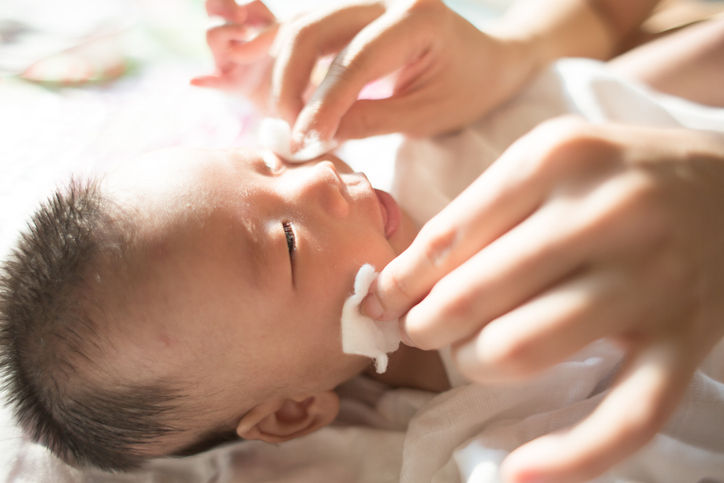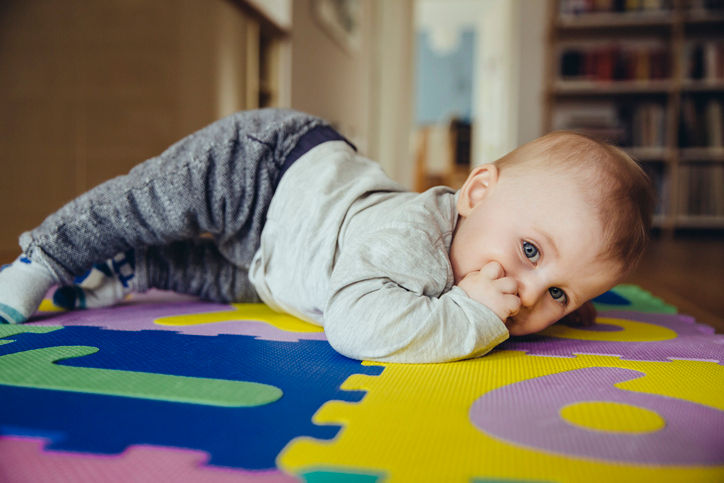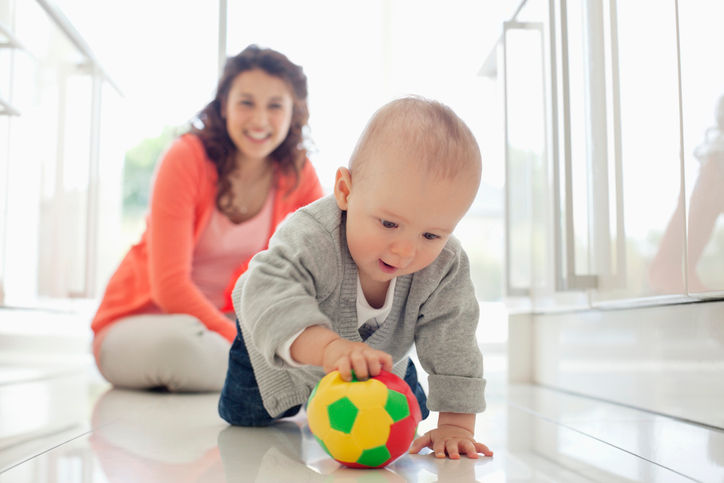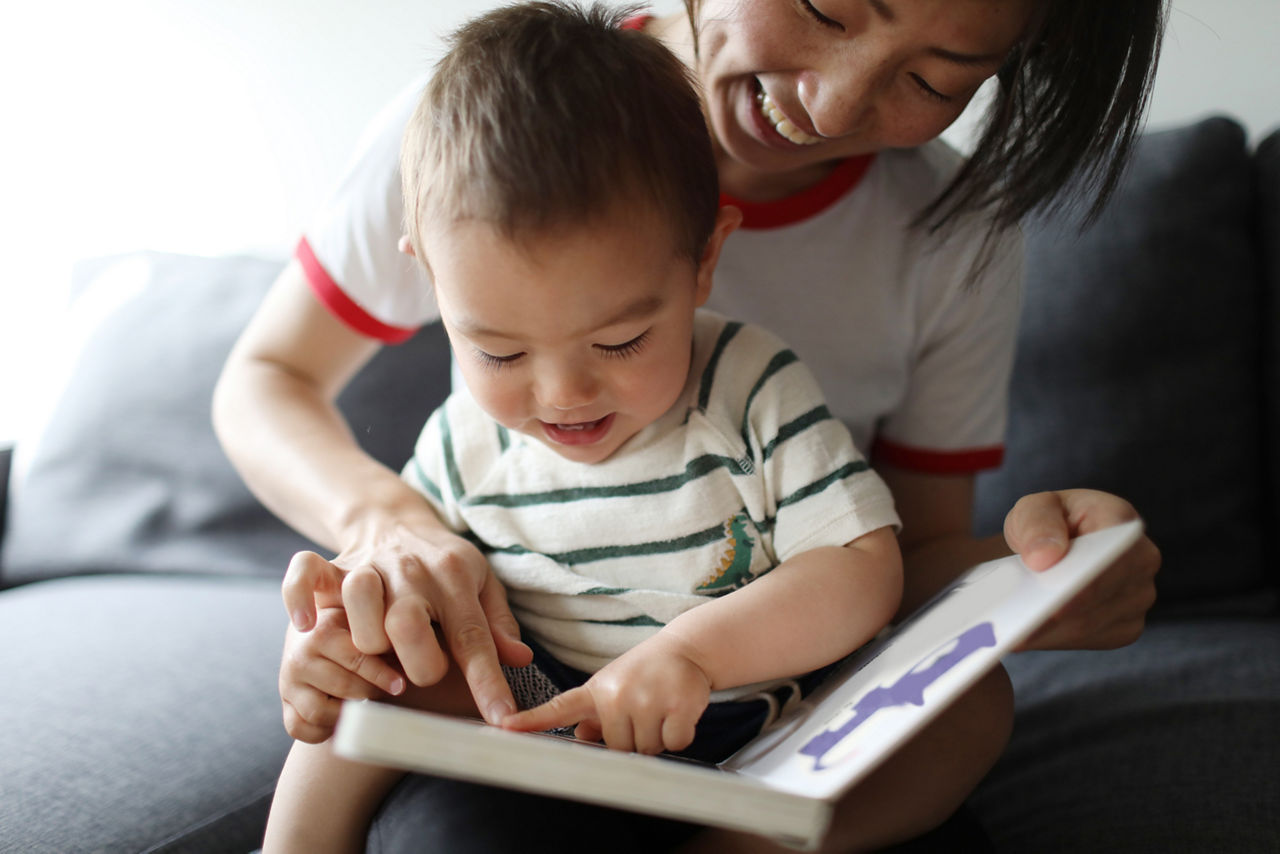Breastmilk is the best for babies. The World Health Organisation recommends exclusive breastfeeding for the first six months of life. Unnecessary introduction of bottle feeding or other food and drinks will have a negative impact on breastfeeding. After six months of age, infants should receive age-appropriate foods while breastfeeding continues for up to two years of age or beyond. Consult your doctor before deciding to use infant formula or if you have difficulty breastfeeding.
Babies grow up in the wink of an eye. The first 24 months are crucial. Now, you can continue to support their development on all levels: physical, intellectual, and psychological. This is the phase where they gain consciousness of their own bodies, through movement and play. And it doesn’t take much to keep them stimulated. All you need are objects that are readily available at home.
What can be done in the first 6 months?

Strength and sight stimulation
Throw a bunch of different colored pencils into a large, thick, see-through plastic bag that won’t break and can be sealed tightly. Place the bag just within reach of your baby. While they’re lying on their stomach, reaching out to touch the bag will strengthen both their arm muscles and neck muscles, as well as being hugely beneficial for sensory development. And at the same time, it’ll help you introduce them to colours.
Touch and smell stimulation
Gently rub your baby’s body and arms with different fabrics and have them smell different scents. You can strengthen their neural connections by caressing their skin with silk, wool, cotton, and fluffy fabrics. Introduce them to different scents like orange, vanilla and lavender.
Sound differentiation
When your baby is able to make sounds, record them and play them back to him/her. Observe how they react to their own sounds. If it stimulates them, record different sounds around the house, like the ringtone of a phone, or music. This exercise will help them distinguish sounds, which will enable them to differentiate words later on. When the same sounds and word patterns are repeated for babies, they memorize them. The next time they hear the sounds, it will be familiar.
Sound rhythm stimulation
While your baby is lying on their stomach, take two wooden spoons and tap them together to lure the baby to scoot towards you. Increase the sound as they get nearer. In their 5th and 6th months, as your baby is sitting, you can give them the wooden spoons to make noise with. Make sure you supervise their play. Hearing different rhythms and tones will improve their neural connections


Hiding and seeking
Place a toy in front of your baby and then hide it. After hiding it, ask “I wonder where it’s gone?” and ask “Is it over here, over there?” as you search for it. Watch the baby’s reactions. Watch their development every time you play this game. Will their eyes dart over to the place you hid the toy or will they try to scoot over there?
… And don’t forget, wash your and their hands as recommended by MOH before and after playing. Avoid touching the face as much as possible.

Connect with our team of experts
We provide advice and support for you on your parenthood journey



